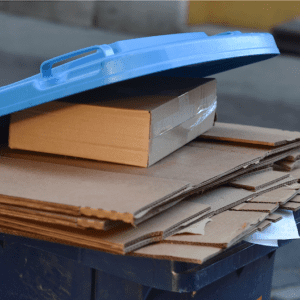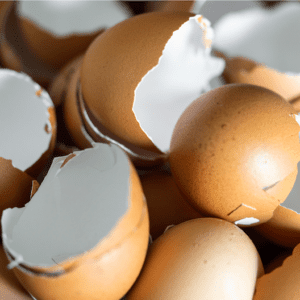If there is one group of people known for their ability to stretch their dollars and let nothing go to waste it’s gardeners! Not only does it leave more money for fun and new heirloom seeds to try, it’s good practice to make the most of what we have. Isn’t that what gardening is all about? Creating something bountiful and beautiful from a few seeds and some well loved soil? We’ve been watching our fans comments on Facebook and we decided to put together a fun and informative piece to help you make the most of the items you likely already have laying around your house. These items will help your garden flourish and can even save you money.
Common Household Waste to Use in Your Garden
Yard Debris
Did you know it’s a good idea to let your leaves fall where they may during the fall? It’s a great environment for all kinds of wildlife including amphibians, beneficial insects, mammals, reptiles and more! It will also help build your soil over time. If you simply HAVE to remove your leaves, however, don’t get rid of them! You can put them to use and keep their energy and nutrients in your system. There are a number of ways to use dead leaves, from making leaf mould to adding them as a carbon source to your compost pile or simply using them as a mulch in your garden beds. Green debris like living leaves make an excellent source of nitrogen in your compost pile as well. Just remember to maintain a radio of 30 parts Carbon to 1 part Nitrogen, otherwise your decomposition will take longer.
Cardboard
Got a pile of cardboard boxes you’ve “forgotten” to take out to the recycling bin for the last 6 months? Don’t toss them—use them! Clean cardboard is an excellent resource for creating new garden beds because they keep the weeds out and create an instant clean planting area. Simply lay your cardboard out, cutting as necessary to create the shape that you want. You can either plant first and lay cardboard around, or you can cut holes into the cardboard to plant in. Then it’s just a matter of laying down a thick layer of mulch and maintaining it! Over time, worms and insects will eat away at the material, leaving nutrient rich material in the bed and helping to maintain a weed free environment to keep your plants––and your back––healthy

Ashes
Is there anything better than a toasty fire during the cool fall and winter months? When the fire has gone out and the embers have all died, you might wonder what you can do with the ashes. Quite a bit, actually! Potassium and calcium loving plants will love a sprinkle of wood ash to give them a nutrient boost! It’s also a great additive to your compost pile. Be careful, however, ash can increase the pH of your soil so it’s a good idea to test your soil beforehand!
Freshwater Aquarium Water
Those that keep fish—whether in a pond or in an aquarium—know the chore of cleaning can be tedious. While you might be tempted to simply dump this liquid into the toilet, you’d be wasting an incredible chance to add a huge nutrient boost to your garden. That’s because the water in your aquarium accumulates beneficial nutrients like nitrogen, phosphorous, potassium and ammonia as well as micro-organisms whose job it is to process these materials. For your garden, this equals an incredibly dense dose of things your plants crave. You can either dilute the water and put it right into your garden soil, or simply empty it into your compost pile! While on the subject of aquariums, it’s an inevitable fact that fish will die, so instead of flushing them down the toilet, take them out to the garden and bury them near the base of a plant. Your garden will thank you later!
Egg Shells
After you’ve cracked all those eggs for Sunday breakfast, you might be tempted to simply toss them in the trash. Or you could use them to provide your garden with an incredibly important nutrient they need: calcium. The calcium rich eggshells can be dried by leaving them whole and rinsing them out with water. Then simply throw them into the oven at around 250f for around 30 minutes until they’re thoroughly dried. From here, either crush them in a mortar and pestle, or better yet, an old coffee grinder. You’ll end up with a fine powder of calcium which your plants will love! Calcium is a critical element for growing plants like cabbage, broccoli, carrots, citrus, tomatoes, and more!

Epsom Salt
Many people don’t realize that Epsom salt isn’t really salt—it’s a pH neutral combination of magnesium and sulfate, both critical for healthy plant growth. It helps strengthen cell walls and improve the uptake of other important ingredients. Simply dissolve a tablespoon into a gallon of water and apply to your plants!
There are plenty more common household items you might be surprised to find are useful in your garden! Just take a look around and get creative.